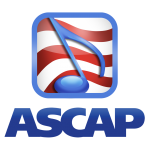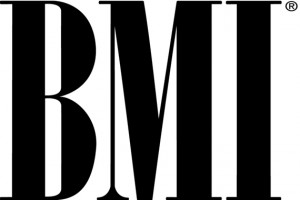Music Licensing Guide
The three major licensing companies, ASCAP, BMI, and SESAC are formally known as Performing Rights Organizations. They all represent songwriters and publishers and their right to be compensated for public performances of their copyrighted music.
- Background on licensing companies:
-
 ASCAP – the American Society of Composers, Authors and Publishers (ASCAP), a membership association of more than 540,000 US composers, songwriters, lyricists and music publishers of every kind of music.
ASCAP – the American Society of Composers, Authors and Publishers (ASCAP), a membership association of more than 540,000 US composers, songwriters, lyricists and music publishers of every kind of music. BMI – BMI supports its songwriters, composers and publishers by taking care of an important aspect of their careers – getting paid. BMI supports businesses and organizations that play music publicly by offering blanket music licenses that permit them to play more than 8.5 million musical works. Both relationships save each time and money.
BMI – BMI supports its songwriters, composers and publishers by taking care of an important aspect of their careers – getting paid. BMI supports businesses and organizations that play music publicly by offering blanket music licenses that permit them to play more than 8.5 million musical works. Both relationships save each time and money. SESAC – SESAC, Inc is a performing rights organization with headquarters in Nashville and offices in New York, Los Angeles, Atlanta, Miami and London.
SESAC – SESAC, Inc is a performing rights organization with headquarters in Nashville and offices in New York, Los Angeles, Atlanta, Miami and London.
-
- The three kinds of rights songwriters have to their music:
- Performance rights – governing the performance of their music (either by themselves or by others covering their music)
- Mechanical rights – covering the reproduction of their music on various forms of media (CD, DVD, Flash Drive)
- “Synch” rights – covering the synchronizing of music with images of video or film, such as a sizzle reel.
- Reasons why events need to make sure they pay these companies
- Up until the late 1980s, music licensing was handled more privately between producers, building managers, hoteliers, and the licencing agencies. Today these Performing Rights Organizations have decided to focus on enforcing their contracts with the entities who have asked, coordinated, or paid for songs to be performed or broadcast. This includes not just live music but anything recorded, say from an iPod, that you play publicly over a PA.
- Copyright laws for songwriters do exist and songwriters have legal rights for their music. U.S. Copyright law recognizes musical compositions as intellectual property, similar to books, software, and movies. Songs cannot be used in public without the permission of the copyright owner.
- The Copyright Act defines “public” as any gathering “where a substantial amount of persons outside a normal circle of a family and its social acquaintances are together”.
- Quick Facts about Music Licensing
- They are issued on a blanket basis for meetings or events, so you don’t have to worry about how many songs / how long the performance goes.
- Neither agency, BMI or ASCAP, can deny a request for a license.
- Terms and Conditions of your license can be negotiated on a case by case basis; you are not required to use their default terms.
- There are some artists that privately own and license their music, like Andrew Lloyd Weber and Billy Joel. You would need to work directly with their companies (something their booking agent should be able to help facilitate).
- Jukeboxes must be licensed
- On-hold music that plays for a business is subject to licensing.
- The fee is based on the total amount of people expected to hear your music, with the exception of Special Event Licenses.
- A set fee will cover an entire event and reflects a per person charge.
- You make payments based on your estimation of attendance and/or self-reporting your attendance figures. The PROs reserve the right to audit, however.
- The PROs do not license “dramatic” rights (also known as “grand” rights), which normally covers musicals, operas, ballets, and the like. But they will authorize nondramatic performances of songs from dramatic productions (i.e., playing a song from a Broadway play at a concert).
- The PROs do not license the right to insert music as part of a video presentation (“synch” rights) – writers or publishers license those rights.
- The PROs do not license the right to record music to any form of media (“mechanical” rights) – writers or publishers license those rights.
- Licenses are tax deductible.
- Steps to take in order to be compliant
- Determine your situation:
- Using Audio (Mechanical) Music Only? Pay BMI and ASCAP
- Using Live Music? Pay BMI and ASCAP
- Use Music with Visuals? Obtain “Sync” licenses from music publishers and record companies, and pay BMI and ASCAP
- Producing a Convention, Trade Show, or Exposition? The Convention sponsor pays BMI and ASCAP, and the exhibitor pays “Sync” licenses if using music with visuals. Otherwise exhibitors will be covered by the Convention’s license.
- Apply for a license (links will open in a new window to their application):
- Determine your situation:
- Major North American Music Licensing Companies:
- Key Differences between the three major US PROs:
- ASCAP and BMI cover the event or festival whereas SESAC covers the venue where music will be played.
- Most event planners will not have to obtain a license from SESAC but they will need to make sure the venue they are renting already has one.
- International Music Licensing Companies:
 ACEMLA – was founded in the city of New York in the year 1970 under the name of Latin American Music Co. (LAM), which was incorporated in 1981 and legally registered under the letters ACEMLA.Latin American Music Co., Inc. (LAMCO) is a music publishing company of the United States of America that posesses a vast latinamerican music catalog. It is affiliated with ACEMLA.
ACEMLA – was founded in the city of New York in the year 1970 under the name of Latin American Music Co. (LAM), which was incorporated in 1981 and legally registered under the letters ACEMLA.Latin American Music Co., Inc. (LAMCO) is a music publishing company of the United States of America that posesses a vast latinamerican music catalog. It is affiliated with ACEMLA. Performing Right Society – PRS for Music is the home of PRS and MCPS, representing the rights of over 100,000 members in the UK. We license organisations to play, perform or make available copyright music on behalf of our members and those of overseas societies, distributing the royalties to them fairly and efficiently.
Performing Right Society – PRS for Music is the home of PRS and MCPS, representing the rights of over 100,000 members in the UK. We license organisations to play, perform or make available copyright music on behalf of our members and those of overseas societies, distributing the royalties to them fairly and efficiently.
– the book goes into much greater detail if you would like to learn more.
- Key Differences between the three major US PROs:


